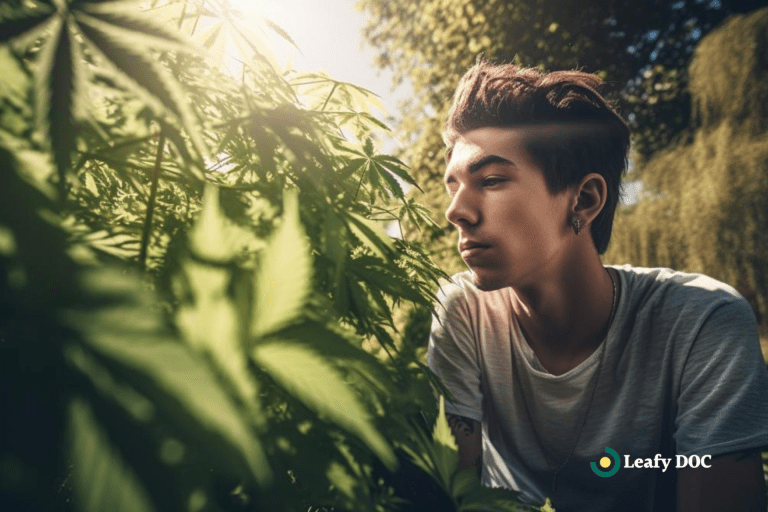Eczema
What is Eczema?
Eczema is an inflammatory skin condition that typically results in patches of red, flaky skin cells. This condition can be triggered by dry skin, chemical irritants, or stress.
How common is it?
- 31.6 million Americans have eczema and prevalence peaks during early childhood.
- An estimated 1 in 10 individuals will develop some form of eczema during their lifetime.
- Sixty percent of individuals with atopic dermatitis received a diagnosis within one year of initial symptom presentation.
- People of all races and ethnicities can be affected by eczema:
- White – 11%
- Black or African American – 10%
- Asian or Pacific Islander – 13%
- Native American – 13%
What triggers it?
While the specific cause is unknown, eczema is a skin condition thought to be caused by a combination of genetics and environmental factors. The known facts are that it is not contagious and is caused by a weak immune system.
These are the most common triggers:
- extended exposure to dry air, extreme heat, or cold
- some types of soap, shampoo, bubble bath, body wash, facial cleansers
- laundry detergents and fabric softeners with chemical additives
- certain fabrics like wool or polyester in clothing and sheets
- surface cleaners and disinfectants
- natural liquids like the juice from fruit, vegetables, and meats
- fragrances in candles
- metals, especially nickel, in jewelry or utensils
- formaldehyde, which is found in household disinfectants, some vaccines, glues, and adhesives
- isothiazolinone, an antibacterial found in personal care products like baby wipes
- Cocamidopropyl betaine, which is used to thicken shampoos and lotions
- paraphenylenediamine, which is used in leather dyes and temporary tattoos
Eczema symptoms
People living with eczema can experience a variety of symptoms, ranging from mild to severe:
- Itching
- Dryness, sensitive skin
- Inflamed, discolored skin
- Rough, leathery, or scaly skin
- Oozing
- Crusting
- Swelling
Types of Eczema
There are seven different types of eczema: atopic dermatitis, contact dermatitis, dyshidrotic eczema, nummular eczema, seborrheic dermatitis, and stasis dermatitis.
Atopic Dermatitis
Atopic dermatitis is the most common form of eczema. It causes causes inflammation, dryness and itchy skin. Atopic dermatitis is typically found on the skin of young children; however, it can occur at any age.
Contact Dermatitis
Contact dermatitis is also called allergic contact dermatitis (ACD). It is a type of eczema that is triggered by environmental factors.
Dyshidrotic Eczema
Dyshidrotic eczema is a form of eczema that dries out the skin and can cause itching and burning sensation, sometimes accompanied by rashes and blisters.
Nummular Eczema
Nummular eczema is also called nummular dermatitis. It creates small, rounded lesions all over the body, predominantely on the arms and legs.
Seborrheic Dermatitisis
Seborrheic dermatitis is an inflammatory eczema condition that affects the skin of the scalp and causes flakes and dandruff.
Stasis Dermatitis
Stasis dermatitis is a type of eczema that causes skin discoloration on the legs. This conditions typically looks similar to varicose veins.
Neurodermatitis
Neurodermatitis is also known as discoid eczema. It’s a form of the condition that affects small patches of skin by making them scaly and itchy.
Does medical marijuana help with eczema?
CBD, THC, and other cannabinoids could benefit this condition through ointment and oils, creams, salves, or moisturizers to relieve pain and inflammation, provide skin hydration, and stop the irritation of those red patches of skin cells.
Some researchers believe that topical cannabis products have the potential in treating the most common form of eczema called atopic dermatitis (AD). Medicinal marijuana is also known for its anti-inflammatory properties for the skin.
Are there treatment options or a cure?
There is not currently a cure for eczema as the origin of the disease is still widely unknown.
However, there are a few treatment options and a drug comprised of ingredients that help to treat eczema that the FDA approves:
- Hydrocortisone creams
- CBD oils and topicals
- Oral Medications
- Biologics injections
- Light Therapy
- Bleach Baths
- Acupuncture
- Cryotherapy
History of Cannabis and Skin Care
Cannabis, especially CBD, is highly prevalent in today’s society. CBD used to control pain and treat skin conditions can be traced back to ancient times, as they used it in abundance during religious practices and rituals.
The earliest uses of cannabis for skincare can be traced back to Ancient Egypt. Pharaoh Ramses II was known to partake in cannabis use and encouraged others to use the plant. Back then, hemp assisted in creating buildings and textiles.
During the 20th century, cannabis was extensively criminalized due to a societal outcry; however, changing laws and further research into the compounds within the plant led to a slow but vast reconsideration of their potential health benefits. The use of cannabis is becoming more widely accepted today due to the balancing effects of this particular cannabis-derived compound.
Can MMJ Benefit Other Skin Disorders?
Yes. Let’s take a closer look at two other medical conditions below.
Dandruff
Dandruff is often caused by severe to moderate scalp psoriasis or an infection that causes scalp inflammation, itching, irritation, flaking, and redness.
CBD products such as shampoo, conditioner, scalp scrubs, and treatments could help relieve the itching and scratching. The cannabinoid system can also benefit from the antimicrobial effects of CBD to treat psoriasis.
Psoriasis
The National Psoriasis Foundation (NPF) describes psoriasis as an immune-mediated skin disease characterized by the inflammation of immature skin cells from a dysfunctional immune system. It is unclear what the exact cause of psoriasis is, and symptoms can occur at any age among men, women, children, and people of all ethnicities.
Recent peer-reviewed studies within the dermatological science field show that CBD as a complementary treatment with other medications and sometimes even alone as an oil or topical therapy for affected skin offers potential benefits for people with psoriasis. Specific CBD dose-related effects may even offer an immune response in slowing cell growth so that new skin cells react differently.
Final Thoughts
At Leafy DOC, we recommend speaking with your dermatologist or another healthcare provider before making any changes or adding CBD use to your eczema treatment. However, recent studies and continued research strongly suggest you may be able to find some health benefits and even symptom relief from the right cannabis products.
Last Updated: June 14, 2024
Get Your Medical Card
Connect with a licensed physician online in minutes
Table of Contents
Keep Reading
-
Finding The Right Medical Marijuana Strains For Sleep Disorders
Having trouble sleeping? Find the ideal medical marijuana strains for sleep disorders and wake up refreshed. Click now to conquer your insomnia and enjoy restful nights!
-
Exploring The Health Benefits Of Recreational Marijuana
Uncover the remarkable health benefits of recreational marijuana, including pain relief and better sleep. Don’t miss out on exploring this natural wonder for yourself – click here to learn more!
-
Exploring The Benefits Of Medical Cannabis
Are you curious about the amazing benefits of medical cannabis? Find out how this natural remedy can transform your life with pain relief, anxiety management, and more. Click now to explore the incredible advantages waiting for you!



